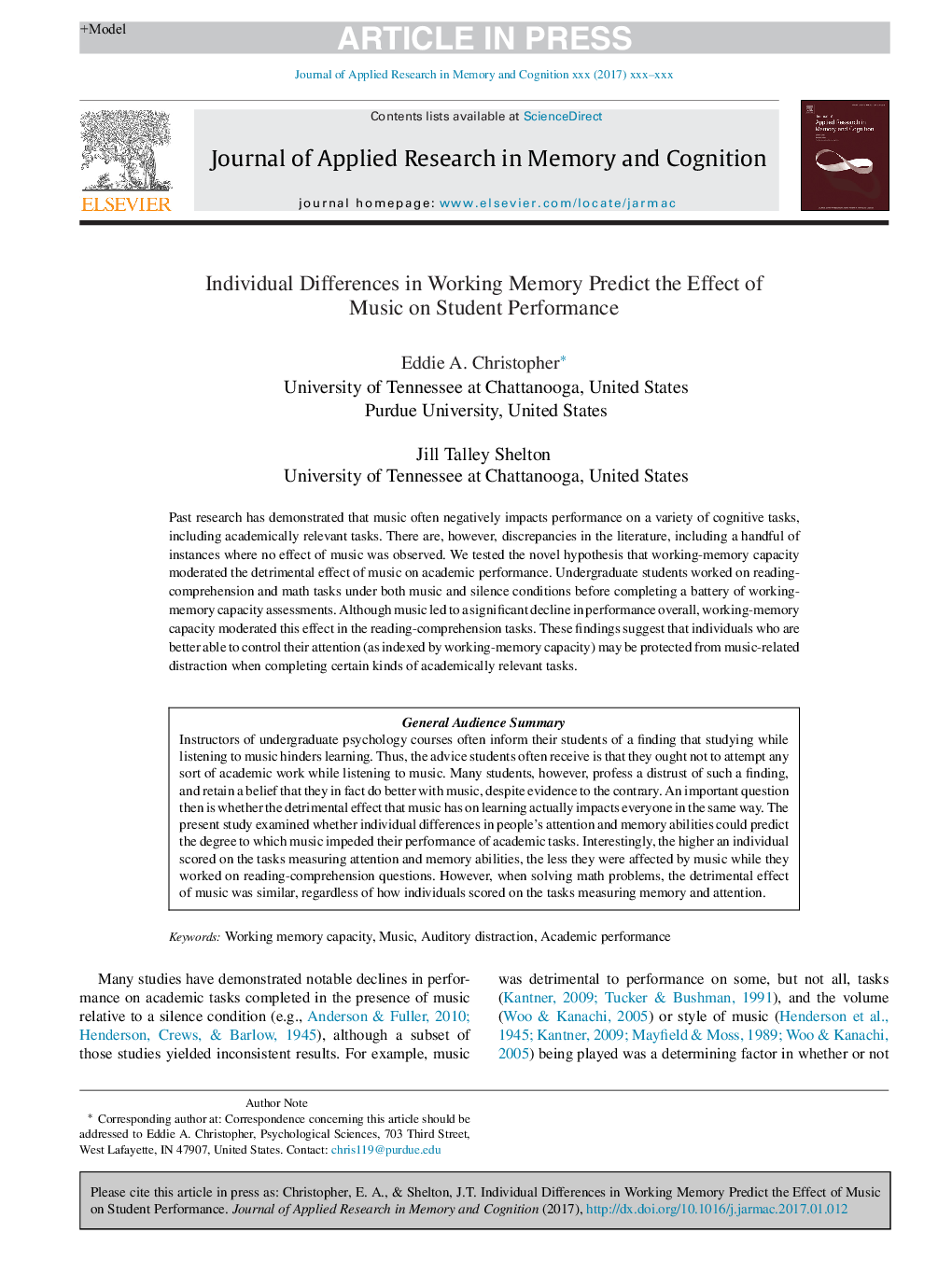ترجمه فارسی عنوان مقاله
تفاوت های فردی در حافظه کاری پیش بینی تاثیر موسیقی بر عملکرد دانشجویی
عنوان انگلیسی
Individual Differences in Working Memory Predict the Effect of Music on Student Performance
| کد مقاله | سال انتشار | تعداد صفحات مقاله انگلیسی |
|---|---|---|
| 160431 | 2017 | 7 صفحه PDF |
منبع

Publisher : Elsevier - Science Direct (الزویر - ساینس دایرکت)
Journal : Journal of Applied Research in Memory and Cognition, Volume 6, Issue 2, June 2017, Pages 167-173
ترجمه کلمات کلیدی
ظرفیت حافظه کاری، موسیقی حواس پرتی شنوایی، عملکرد تحصیلی،
کلمات کلیدی انگلیسی
Working memory capacity; Music; Auditory distraction; Academic performance;
ترجمه چکیده
تحقیقات گذشته نشان داده است که موسیقی اغلب منفی عملکرد را بر روی انواع وظایف شناختی، از جمله وظایف مرتبط با تحصیلات تأثیر می گذارد. با این حال، تفاوت در ادبیات وجود دارد، از جمله تعداد کمی از موارد که هیچ اثر موسیقی مشاهده نشد. ما فرضیه رمان را بررسی کردیم که ظرفیت حافظه کاری، تاثیرات مضر موسیقی بر عملکرد تحصیلی را تعدیل می کند. دانش آموزان کارشناسی بر روی خواندن و درک و وظایف ریاضی تحت هر دو موسیقی و شرایط سکوت قبل از تکمیل باتری از ارزیابی ظرفیت حافظه کار. اگر چه موسیقی موجب کاهش قابل توجهی در عملکرد به طور کلی شد، حافظه کاری حافظه این تاثیر را در وظایف درک خواندن و خواندن تعدیل کرد. این یافته ها نشان می دهد افرادی که توانایی کنترل بیشتر خود را دارند (به عنوان شاخص با ظرفیت حافظه کاری) ممکن است در هنگام تکمیل انواع خاصی از وظایف مربوط به تحصیلی از انحراف از مرتبط با موسیقی محافظت شوند.

